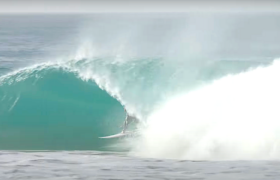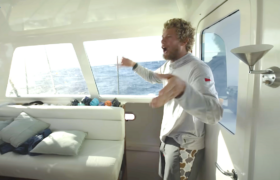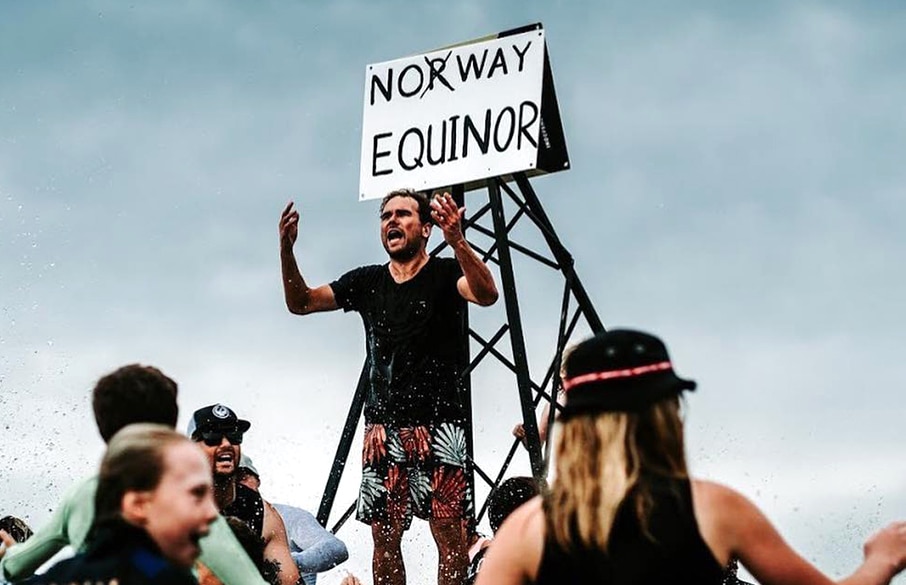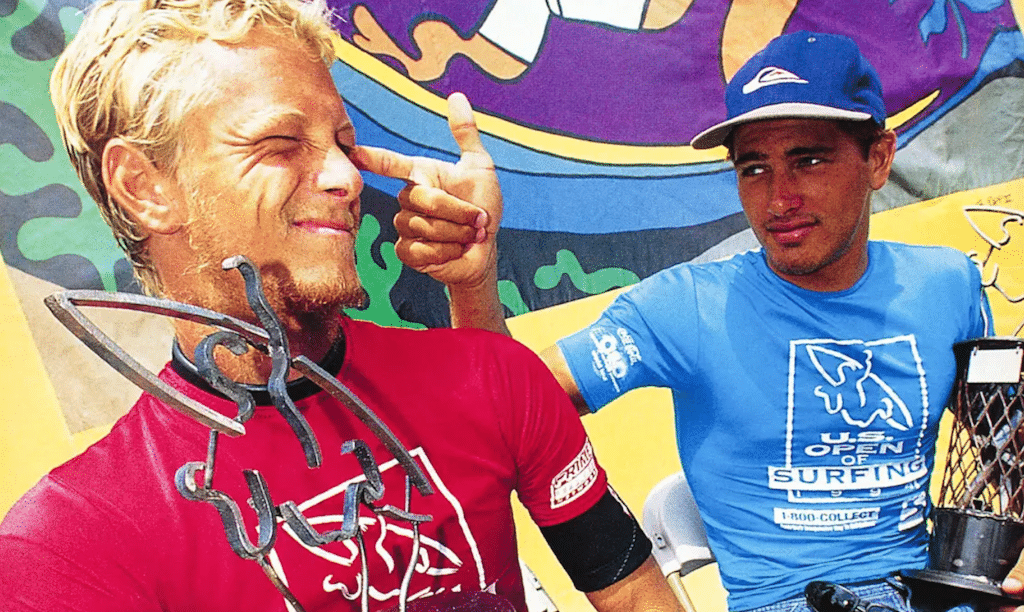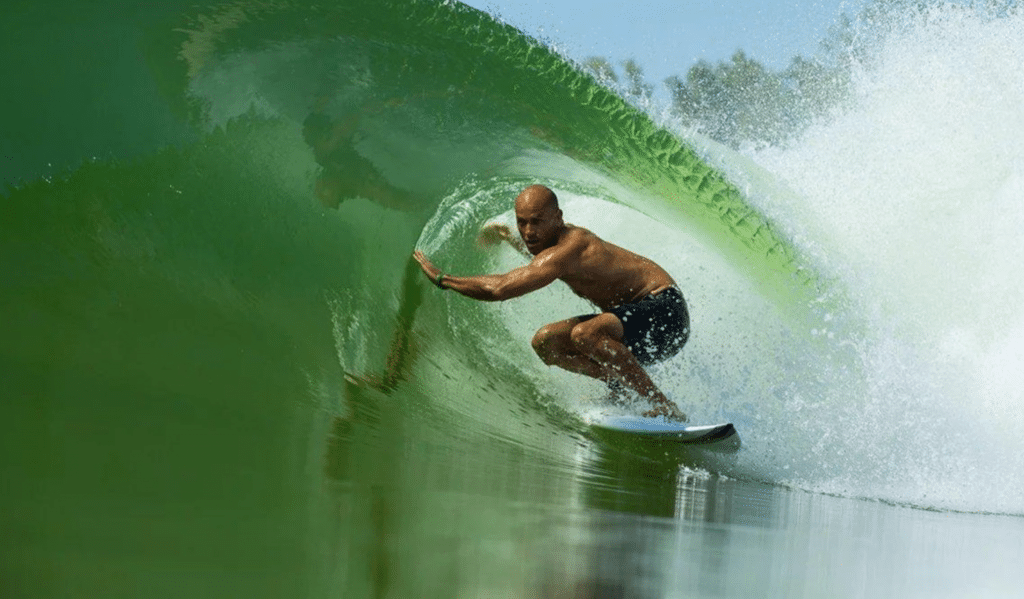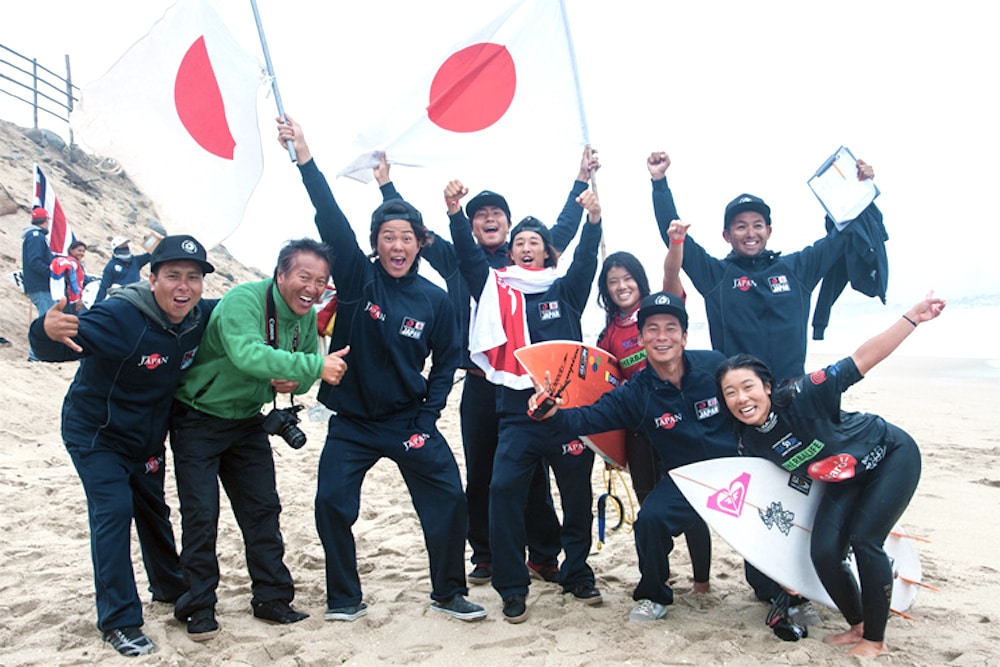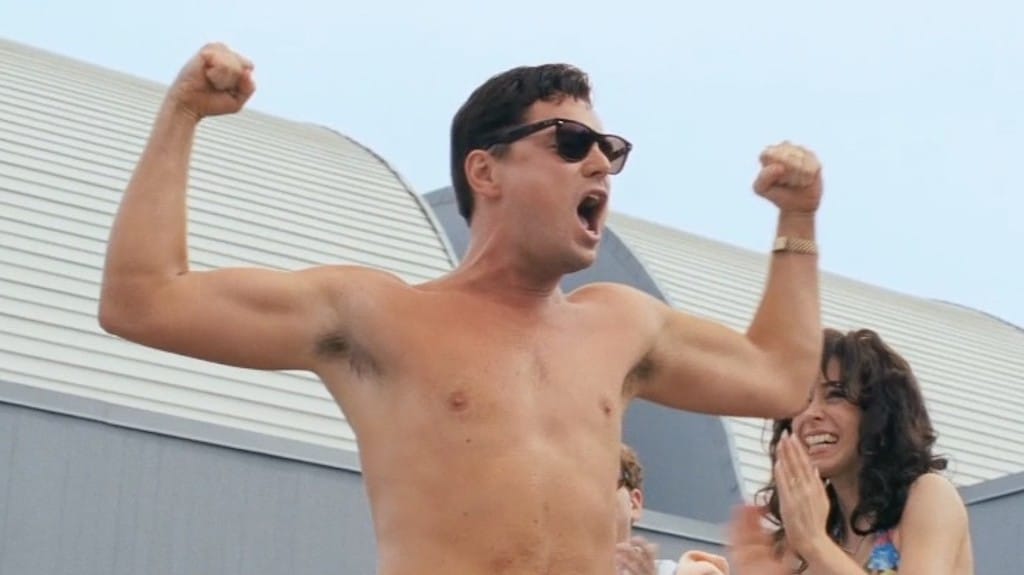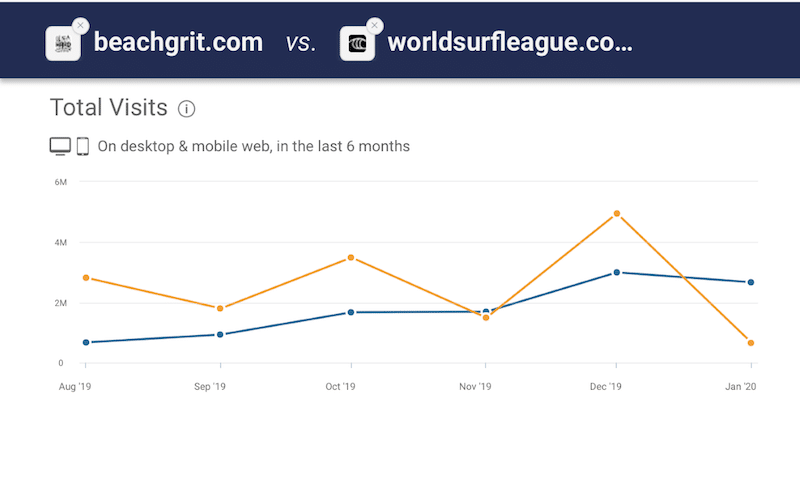"We've woken up the surfers. We're at the forefront, we surf everyday, we're at the coast. We see the changes."
Damien Cole, Victorian surfer and son of designer-shaper Maurice Cole has been the main man when it comes to organising the David and Goliath battle against Norwegian energy company Equinor’s proposal to deepwater drill for hydrocarbons in the Great Australian Bight.
Cole was the chief architect of the Australia wide mass paddle-outs on November 23 last year and played a pivotal role pressuring political parties by running for the Victorian seat of Corangimite in the 2018 state elections.
A monstrous ordeal that involved copious blood, sweat and tears is how Cole described the fight for the Bight.
I copped a bollocking (correctly) below the line from Maurice Cole in my reportage of the Byron Bay paddle-out for failing to emphasise that Equinor had no social licence to drill in the Bight.
It seems that paddle-out pressure from the community, effectively robbing Equinor of the social licence to extract resources from the Bight, played a key role in their backdown from drilling proposal yesterday.
Damo Cole was in a buoyant mood when I spoke to him minutes ago about the Equinor backdown and the future implications for the Bight and more generally.
LT: The paddle-outs were in November and the NOPSEMA greenlight came just before Christmas, did you see this pullout from Equinor coming?
DC: Nah, I’ve got to be honest, I didn’t see it coming at all. I and a lot of people I spoke to around the country felt very deflated in December when they got the approval just before Christmas, so this decision came as a complete shock. I still can’t believe it.
LT: They’ve said the economics don’t stack up. What role do you think the community pressure from the protests played in their decision?
DC: I think it played a vital role in them pulling out. It’s obvious they’ve felt the pressure but they didn’t want to lose face: if they do state that it was because of public pressure then their showing a chink in their armour. You don’t push for a project for two years and then suddenly turn around and do the books. These companies do the books way beforehand. They know the risks, they know the costs. As they said themselves, they’ve been doing it for years and they know it all. I think it all got too much with the Wilderness Society taking them to court, with the pressure Surfrider put on and all the communities all around the country standing up. That was all really pivotal in them pulling out.
LT: It doesn’t sound like the politicians involved, like Keith Pitt, have acknowledged community sentiment, the lack of social licence for Equinor. Where does that leave us now, with respect to the political situation?
DC: It’s a really interesting point. While this has been an incredible win for Australia, for our communities, for our Oceans, the fight for the Bight is not over yet. It won’t be over until we have permanent protection for the Great Australian Bight under a World Heritage Status. That’s what we’re going for next. That’s where the Government will have to step in and reflect our wants and needs. They’ve been elected to represent the Australian people and this is what the overwhelming majority want. It’s up to the communities to keep pushing but we’re looking at our governments and demanding protection.
LT: Does this signify a larger shift in public sentiment away from fossil fuels in Australia?
DC: Absolutely. This whole campaign has demonstrated that. Our Government has tried to paint this picture of radical activists being responsible for the protests. I’ve been to twelve or thirteen of these paddle-outs, I didn’t meet one radical activist. These are everyday people at our coastal communities. This could be a real shift and it could be a moment in history, a real turning point for Australia. We have the opportunity and the power, as the people in our communities, to drive that.
LT: What were you doing yesterday when you found out?
DC: I’m down in Tassie with my Mum, I was driving and my media manager from the Fight for the Bight campaign was calling me. When I called him back and he told me the news, I had to pull over and started shaking. Mum said, “I’ll drive” and I just broke down into tears. I called a few people and then I’d promised I’d take Mum to the movies so I switched my phone off and went to the movies (laughs). I’ve been speaking to all the community leaders, there’s elation all over the country. Finally some good news.
LT: Does this mark a new era in surfers being listened to as an Environmental voice?
DC: Yeah, I definitely think so. We’ve woken up the surfers. We’re the canaries in the coalmine really. We’re at the forefront, we surf everyday, we’re at the coast. We see the changes. Now that we’ve seen what we can achieve I daresay this is the beginning of a new era of putting our environment and our planet higher up the priority list and realising we have got the power to do great things and make some positive changes. That’s the feeling I’ve got from everyone I’ve spoken to over the last 24 hours: there’s hope again.
LT: Anything else you want to bring to the public’s attention?
DC: Yeah, I just want to reiterate this fight is not over. We’ll be moving on. We’ll be putting on some big events with Surfrider Foundation between now and April. We’re gunna push for World Heritage Status, we want this permanent. We don’t want to have to fight this fight again. It’s been a big win and the end is in sight but we got to keep pushing.
